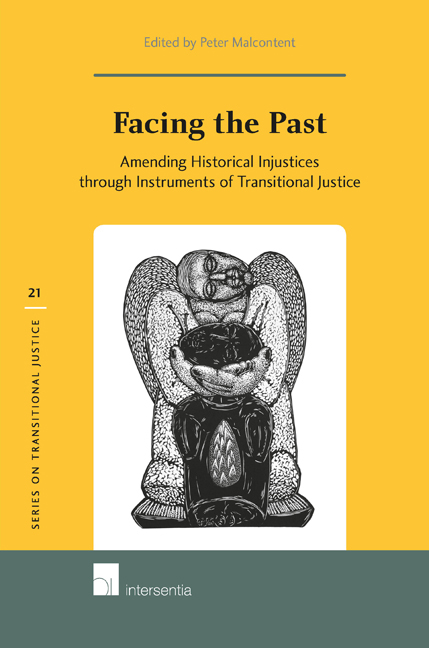Book contents
- Frontmatter
- Acknowledgements
- Contents
- PART I TRANSITIONAL JUSTICE. WHAT'S IN THE NAME?
- PART II RETRIBUTIVE JUSTICE
- Introduction
- Pacting the Law within Politics. Lessons from the International Criminal Court's First Investigations
- National and Hybrid Tribunals. Benefits and Challenges
- Beyond the Courtroom. The Objectives and Experiences of International Justice at the Grassroots
- From Gacaca to Mato Oput. Pragmatism and Principles in Employing Traditional Dispute Resolution Mechanisms
- Dealing with Organisations and Corporations
- PART III RESTORATIVE JUSTICE
- PART IV PENDING CASES
- Author Information
From Gacaca to Mato Oput. Pragmatism and Principles in Employing Traditional Dispute Resolution Mechanisms
from PART II - RETRIBUTIVE JUSTICE
Published online by Cambridge University Press: 15 December 2017
- Frontmatter
- Acknowledgements
- Contents
- PART I TRANSITIONAL JUSTICE. WHAT'S IN THE NAME?
- PART II RETRIBUTIVE JUSTICE
- Introduction
- Pacting the Law within Politics. Lessons from the International Criminal Court's First Investigations
- National and Hybrid Tribunals. Benefits and Challenges
- Beyond the Courtroom. The Objectives and Experiences of International Justice at the Grassroots
- From Gacaca to Mato Oput. Pragmatism and Principles in Employing Traditional Dispute Resolution Mechanisms
- Dealing with Organisations and Corporations
- PART III RESTORATIVE JUSTICE
- PART IV PENDING CASES
- Author Information
Summary
INTRODUCTION
In a speech given in February 2010, the Rwandan President Paul Kagame recapitulated the essence of delivering justice in post-genocide Rwanda for his international audience: the traditional gacaca, he held, had played an essential role where the formal judiciary had been destroyed, and had been able to meet the dual needs of dispensing justice and promoting reconciliation in a way that the formal courts could never have done. This ‘traditional Rwandan institution’, in the President's words, ‘was modernized to supplement classical judicial systems for trying genocide suspects and at the same time re-integrate offenders into communities that included genocide survivors’. As such, in his opinion, it formed an example of addressing the root causes of a conflict by combining universal values with home-grown solutions.
The Rwandan gacaca, in many ways, serve as an example of a somewhat exotic but increasingly essential element of the ‘transitional justice toolbox’ as employed all over the world. Next to tribunals, truth commissions and a host of mechanisms for reparations, traditional dispute resolution mechanisms have been reinvigorated or even reinvented for the purpose of dispensing post-conflict justice in former colonies with a tradition of legal pluralism like East Timor, Sierra Leone, Rwanda and Burundi. For the purpose of this contribution, traditional dispute resolution mechanisms will be defined as local-level dispute resolution mechanisms that partly derive their legitimacy from an association with symbols, rituals and procedures considered to be uniquely local and tested over time.
I will first show how these mechanisms have become increasingly important, arguably as an alternative to the increasingly globalised field of transitional justice. Their appeal, it seems, lies in two fields: that of pragmatism and that of principles. Pragmatists argue that these mechanisms are necessary to dispense any form of justice at all, and that they have a number of pragmatic advantages over other forms of trials: they are faster, cheaper and more readily accessible. In addition, proponents of a central role for traditional justice mechanisms in transitional justice also invoke a number of more principled arguments: the authentic, ‘home-grown’ character of these institutions enhances their legitimacy; these mechanisms contribute more to reconciliation; and thus they deliver a better type of justice.
- Type
- Chapter
- Information
- Facing the PastAmending Historical Injustices Through Instruments of Transitional Justice, pp. 167 - 186Publisher: IntersentiaPrint publication year: 2016
- 1
- Cited by



